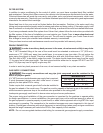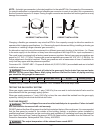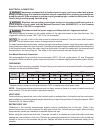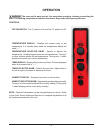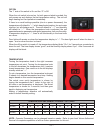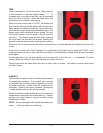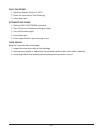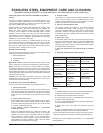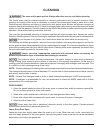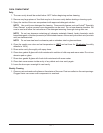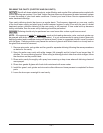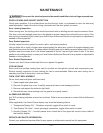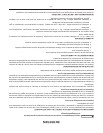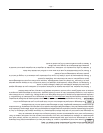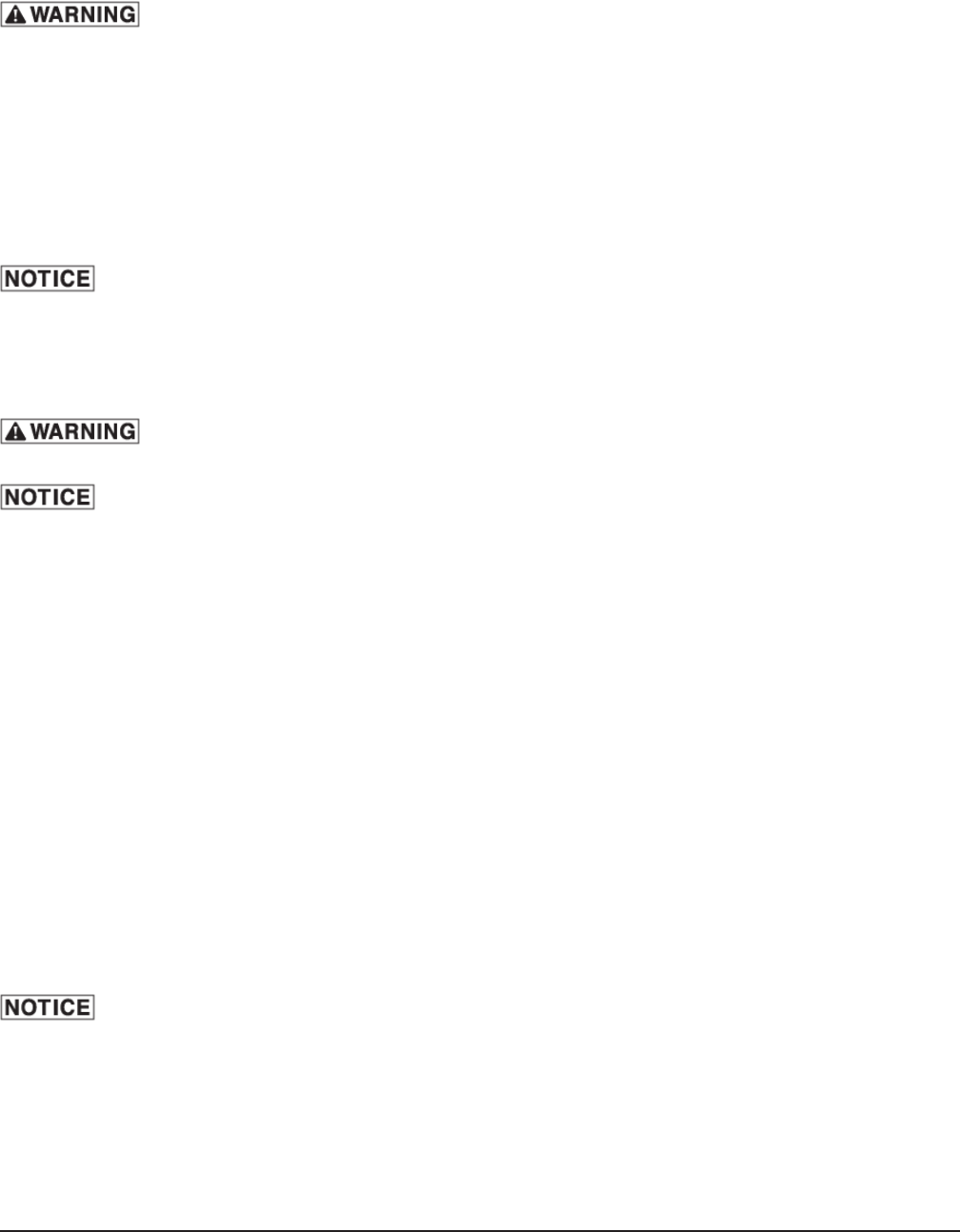
– 16 –
CLEANING
The oven and its parts are hot. Always allow the oven to cool before cleaning.
The Combi oven must be cleaned regularly to maintain performance and to prevent corrosion. Daily
cleaning and rinsing of the cavity is necessary to remove the contaminants found in water and in food.
Performing daily cleaning and rinsing in conjunction with proper water fi ltration will prevent corrosion of
stainless steel and lime scale build-up. Failure to manage proper daily cleaning and maintenance of water
quality can void the warranty. Periodic cleaning is required to the exterior to ensure continued safe, reliable
operation. Review the cleaning instruction provided.
The oven has considerable amounts of stainless steel that will require proper care. Review the section
Stainless Steel Equipment Care and Cleaning for additional information about proper care for stainless steel.
Do not dispose of oil, grease, fat or solid debris down the drain inside the combi cavity.
For cleaning and delime procedures, removal of wire rack shelves, side rack guide supports, and the fan
screen guard to clean them separately may be needed based on usage. Food residue deposited on these
items during cooking can build up in hard to clean areas. Cleaning these items separately can extend their
life and lower cleaning needs for the oven cavity.
Harsh, corrosive, inappropriate chemicals and untreated water can destroy the
protective passivation layer of stainless steel leading to corrosion.
The chemical effects of water contaminants, salt and/or vinegar or other acidic substances
during cooking could create long-term effects of corrosion in the cooking compartment. At the end of a
cooking cycle with these substances, clean the equipment thoroughly with detergent and rinse well. This
is in addition to daily cleaning/rinsing of the cavity.
NOTE: The liquid detergent for cleaning the cooking compartment must have certain chemical characteristics.
The detergent should have a pH level between 8-12 and be free of chlorine/ammonia and have viscosity
and density levels similar to water.
NOTE: Pot and Pan Detergent used in sinks, or hand dishwashing detergent is NOT recommended.
NOTE: If detergent is questionable for use, we recommend to share the MSDS sheet with a Vulcan
representative for review/approval.
DOOR GASKET
1. Clean the gasket-sealing surface of the oven doors to remove food acids for maximum gasket life.
Do not use any solvents or sharp instruments.
2. Wash with a cloth moistened in a solution of mild detergent and warm water.
3. Rinse with a fresh cloth moistened with warm water to remove all traces of detergent.
4. Wipe dry with a clean cloth.
Never apply food oils or petroleum lubricants directly to the door gasket. Petroleum-based
solvents and lubricants will reduce the gasket life.
Leave Oven Door Open
Leave the oven door slightly open when the oven is not in use. When the oven is idle, never latch the
door and apply pressure to the door gasket. Leaving the gasket under pressure can cause permanent
deformation and reduce the gasket life.



